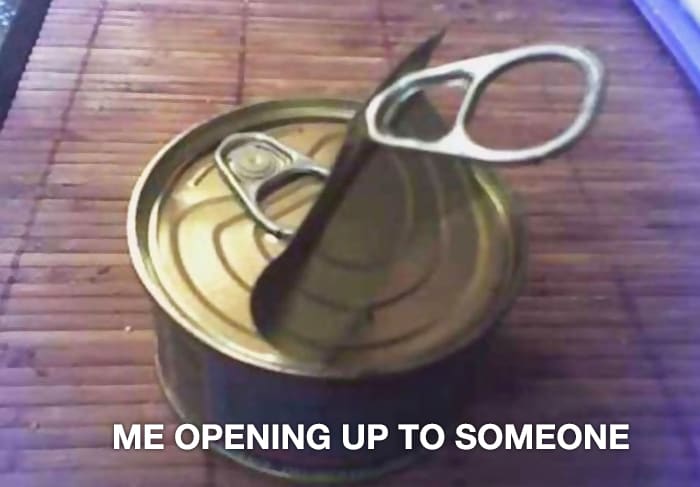My first favorite thing about learning how to code was the freedom to create almost anything from scratch. Without permission. For free. It was amazing.
My new favorite thing was when I realized that people would pay me for what I create. No, not employers, but people! Customers. Real end users.
I could sell my creations directly to them, no middlemen, and again, no permission required. And that seemed magical.
The only question for me at that point was: How?
Eventually, I started Indie Hackers, a community of thousands of developers building profitable side projects and businesses. That was three years ago, and I've learned a ton since then. Here are three tips for beginners looking to make some cash from a side project or a business.
Tip #1 – Make something people want
There are billions of pages on the Internet, but most never get visited. It's not enough to just make something. You have to make something people want.
Start by looking at yourself and at other people. What problems do you often find yourself working around? What goals are you working to achieve? What are your spending your money to accomplish or to solve? Work backwards from there to come up with a straightforward solution that helps.
99% of the time, you won't be the first person to come up with your idea. That's fine! It's a sign you've hit on something real.
Few business ideas are unique, because most people want similar things. Just think about how many restaurants, colleges, and hair salons exist.
Target a boring problem or a predictable desire, then be unique in how you solve it. Mix in your own personality and interests.
For example, Lynne Tye built a website to help developers find jobs at companies they like. She wasn't the first to do this, and she won't be the last. But she put her own spin on it, and it works.
Tip #2 – Keep it simple
Building is the fun part, but don't go overboard. Once you've decided on an idea, you'll be tempted to add dozens of bells and whistles. Resist!
The #1 problem most developers face is spending too much time coding. The best way to avoid that is to keep it simple.
Don't think about what you can add. Think about what you can take away. How can you reduce this idea down to its simplest form?
When Pieter Levels created Nomad List, it was just a spreadsheet of cool places for digital nomads to visit. That's all it needed to be valuable at first. He built the website later.
People love to use simple, high-quality, single-purpose things. Less is more. I'd rather watch an amazing 5-minute short than a mediocre 3-hour movie.
You'll be happier, too. Keeping things simple means you can build and release in days or weeks, not months or years.
Tip #3 – Talk to people
It's not enough just to build something. You have to actually get it in the hands of your customers.
Finding your first customers doesn't require you to be a marketing genius. It usually just involves having 10 or 20 conversations.
Still, this is the hard part for most developers, especially if you're an introvert like me. Who are these people, why do you have to talk to them, and what do you even say? Why isn't it good enough just to build a website and leave it at that?
For starters, you're always going to be more persuasive than your website. You can listen to what people say and then respond. Your website can't.
Talking to people is also a great way to learn. When people check your website and leave, you learn nothing. But in an actual conversation, people have a tendency to tell you why they will or won't buy.
To make things easy on yourself, try building a product for people you already like talking to.
I spend lots of time on developer forums, chatting away, so I built Indie Hackers with developers in mind. It was a ton of fun talking to other developers about what I was building and why, and I knew exactly where to find them on sites like Hacker News.
Tip #4 – Get started!
I'm feeling generous, so here's a bonus 4th tip:
The most important thing you can do, more important than any other advice out there, is just get started!
Don't to wait until you have the perfect idea. You'll learn a ton along the way, more than you can from any book or website.
And as cliche as this sounds, remember that it's up to you to make it about the journey, not just the destination.
Give yourself permission to build something quirky, work with your favorite people, and keep it interesting!
If you go into this treating it as a grand adventure, you'll have a ton of fun, and maybe even make some money along the way.






Top comments (15)
Funny how the best advice sounds so easy :)
Make something people want by talking to them and doing simple things until you provide enough value that they pay for it. Simple! 😅
It's so important to hear it again and again, because even though I already know those things - I still don't do them all the time... that's one reason I listen to the indie hackers podcast! It's great to hear the same advice many times told in different ways from different perspectives; really helps when it comes time to actually do the work.
Thanks for everything you do for the community @csallen !
Woah you are here?! You are an inspiration man. TY so much for what you have done.
Came to the comments to say the same, haha. Thanks @csallen , you inspire lots of people from around the world. We appreciate your efforts and generosity!
A critical question: How do you get money? If selling sth on the web, do you have to incorporate?
I'm sure the laws are different depending on where you live, but in many places it's not legally required to incorporate. With Indie Hackers I just used Paypal to accept money. It was trivial to set up.
Check local laws. Usually it is tax free, or there is an easy solution up to a certain yearly threshold which is helpful enough for kickstarting something new. Sometimes opening a separate bank account helps tracking for this purpose. Asking a local accountant is the best way to get through this.
I love how you've included real-life examples on each one of your points. Props buddy!
And I think the reason why most people fear starting a side project is:
1- Lack of time (in their opinion)
2- Lack of experience (also in their experience)
So based on your expertise and your amazing way of conveying information, I think it'd be a pretty amazing idea to write a series or a vlog of how people should tackle these 2 points above, as well as other points.
If you ever feel interested in doing that, hmu!
Glad to see you here Allen.
That's really valuable advice, and if I was aware of that when I was younger, a lot of projects would not sit on github repos collecting dust.
Guess, I am going to learn hard way.
Peace
Well done sir, and this is a great read. I just signed up on IndieH by the way.
i was struggling following the tip 2, because one of the consecuences of being creative is always thinking in a 'good' new feature to add, but finally i'll take the simplicity as priority.
Thanks for sharing @csallen .
So simple tips but so hard to follow.
Thank you Courtland
Big fan of your podcast.
Inspirational! I can see you're a good writer and that's a good foundation for being a good "builder". Great job, gonna check out your Indie Hackers and look at it from time to time.
Great advice, and thanks so much for sharing. This is similar to what I have experienced with JustCast. Build something simple and people will like it and pay for it.